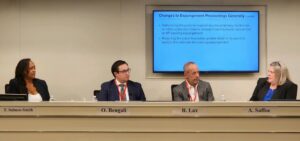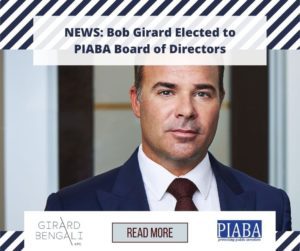After being sued by multiple lenders for non-payment of loans, Washington Redskins’ running back and likely future Hall of Famer Adrian Peterson is suing Morgan Stanley Wealth Management, alleging that his financial troubles stem from a failed investment and dishonest broker who gave him bad investment advice. His lawyers say that Peterson trusted the wrong people with his money and was misled about an investment opportunity that helped to decimate his fortune.
One More Athlete in a Troubling Trend
Regardless of whether Peterson’s allegations prove true, unfortunately, Adrian Peterson’s claims are not unique in the sports industry. Professional athletes, many worth millions, are easy targets for unscrupulous securities professionals. Between 2004 and 2017, professional athletes alleged $494 million in fraud-related losses, and the actual amount of losses is likely more.
Between 2004 and 2017, professional athletes alleged $494 million in fraud-related losses, and the actual amount of losses is likely more.
Some examples of other famous athletes falling victim to fraud schemes include:
- NBA star Kevin Garnett sued his former accountant and his accounting firm, Welenken CPAs, for $77 million in 2018 for failing to stop a rogue wealth manager from stealing millions from Garnett’s account. Garnett alleged that the accounting firm not only knew wealth manager Charles Banks IV was a fraudster, but the firm sat by and watched as Banks took millions.
- NBA player Tim Duncan had been defrauded by Banks as well, for which Banks was sentenced to four years in federal prison.
- Other wealth managers like Jeff Ruben gained the trust of dozens of professional athletes over the course of decades and then took advantage of that trust by relying on their unfamiliarity with the securities industry, their quickly-amassed wealth and their reliance on the recommendations of other clients who believed they were working with a trustworthy broker.
Signs to Watch Out For
Financial scammers and unscrupulous securities professionals do not limit their targets to professional athletes. Unsophisticated investors, the elderly and the recently retired are all classes prone to being defrauded.
Relationships in the financial industry are necessarily built upon trust; trust that your advisor has sufficient experience and understanding of the industry, as well as knowledge of your stated objectives for investing. One would think a long-term relationship where the advisor makes money when the client makes money would be incentive to work in the client’s best interest. While this philosophy holds true for many securities professionals, there are warning signs that can help a client steer clear of those looking to take advantage:
2. Insists on using only his or her personal email account; or
3. Asks you to write a check payable to anyone other than the firm.
Steps Investors Can Take to Protect Themselves
FINRA, the organization tasked with watching over the securities industry, offers information for investors new to investing and the experienced trader. The U.S. Securities and Exchange Commission also suggests taking the following steps to minimize your vulnerability:
- Know the broker – Even if you have social interactions with the broker, conduct research on the broker and the brokerage firm. A good place to start is FINRA’s “BrokerCheck” that provides a snapshot of firms’ and advisors’ backgrounds, licensure and disciplinary history.
- Ask questions – You have the right to know how your money is handled, how much you will be charged and for what. You are also entitled to literature regarding specific investments, proprietary products and alternate investment opportunities for which you may be qualified. You should never feel pressured to forego being informed.
- Check your statements regularly – Do not put your investment account on auto pilot. If you have a non-discretionary account, your advisor cannot trade without your consent, so be sure to check your account statements for trades you haven’t approved. Similarly, if you have a discretionary account, i.e., one where you let your advisor make management decisions, check your statements for excessive trading.
Legal Assistance is Available to Protect You if You Become a Victim of Securities Fraud
Even if you are a sophisticated investor with ample experience in the securities industry, you can still be a victim of securities fraud. If you have suffered losses due to an unscrupulous investment advisor or firm, it is important that you take action immediately. You may have a number of legal options available to you. Our investment fraud lawyers assist private investors recoup their losses, including for claims involving:
- Elder financial abuse
- Recommendations of unsuitable investments
- Failure to perform due diligence
- SEC and FINRA violations
- Breach of fiduciary duty
- Unauthorized trading
- Failure to supervise brokers’ actions
We thoroughly investigate the facts surrounding your claim and develop a personalized legal strategy for your case. Contact us today for a free, confidential consultation.







